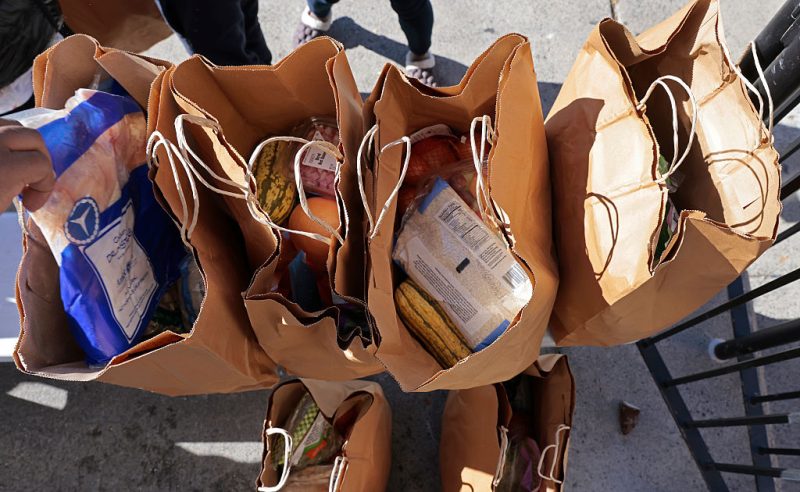
The future of food assistance for over 42 million Americans hangs in the balance as the deadline approaches for the funding of the Supplemental Nutrition Assistance Program (SNAP). The United States Department of Agriculture (USDA) has alerted states that SNAP benefits may not be fully funded if the federal government shutdown extends into November. This uncertainty threatens to impact 1 in 8 Americans who depend on these benefits to purchase essential groceries.
As the countdown to November 1 intensifies, states, nonprofit organizations, and some legislators are actively exploring solutions to mitigate the potential disruption. With the stakes high, various options are on the table to ensure continued support for those in need.
Federal Government Options
One potential avenue is for the federal government to reopen before the deadline, allowing SNAP benefits to be issued as scheduled. Additionally, legislation could be introduced to provide emergency funding for the program even if the government remains closed. On October 25, Sen. Josh Hawley (R-Mo.) introduced a bill aimed at securing emergency funding for SNAP, which could alleviate some of the immediate pressures.
If the government shutdown persists, the USDA could utilize contingency funds to support the program. However, estimates suggest that approximately $8 billion would be needed to maintain benefits for November, while the agency’s contingency fund currently holds around $6 billion.
State-Level Initiatives
In light of the impending crisis, several state governments are taking proactive measures to help residents facing food insecurity. For example, Virginia has declared a state of emergency to access emergency funds if required. Colorado’s governor has requested the state legislature to allocate up to $10 million from the general fund to support food banks and maintain food assistance programs.
In California, Gov. Gavin Newsom announced plans to expedite $80 million in funding for food banks and deploy National Guard troops to assist with food distribution. “This is serious, this is urgent – and requires immediate action,” Newsom stated, indicating the gravity of the situation. Further details on California’s response are expected before the November deadline.
It remains unclear whether states will receive reimbursement for any additional funds spent on SNAP benefits.
Nonprofits Brace for Increased Demand
Local charities and nonprofit organizations are also preparing for a surge in demand for food assistance. Catholic Charities of Acadiana in Kentucky has called for donations to food banks, highlighting the urgent need for support. “Our concern is for families, seniors, and working individuals who are already struggling to make ends meet,” the organization stated.
The state of Colorado has initiated the “Feeding Colorado” initiative, encouraging residents to support one another during this challenging time. Gov. Jared Polis emphasized community solidarity, stating, “Coloradans take care of one another, and we’re stepping up to make sure hardworking families can continue putting food on the table while federal funding is on hold.”
As food banks brace for an influx of requests, organizations like the Share Food Program in Philadelphia are voicing their concerns. Executive Director George Matysik remarked, “The amount of food that SNAP provides has been estimated to be nine times larger than the entire food bank network combined.” He expressed doubt that food banks alone can shoulder the burden of increased demand if federal support is abruptly cut off.
The challenges are not limited to food banks. Nonprofits like the Servants Center in Grand Rapids, Michigan, are facing pressures to meet the needs of their communities. Clinical Supervisor Nia Wolfe articulated the organization’s struggles, stating, “How do we bridge the gap as the state and the federal government figure things out?”
Many organizations have reported an uptick in demand for services since the government shutdown began on October 1, 2023. Triada Stampas, from Fulfill NJ, noted the immediate impact of the shutdown on people’s lives. “When the government shuts down, the disruption in people’s lives starts immediately,” she explained, highlighting the plight of federal employees and contractors who have experienced financial uncertainty due to delayed pay.
As November 1 approaches, the fate of SNAP benefits and the well-being of millions of Americans remain uncertain. The urgency for action from both state and federal levels has never been clearer, as communities rally together to support those who are most vulnerable.






